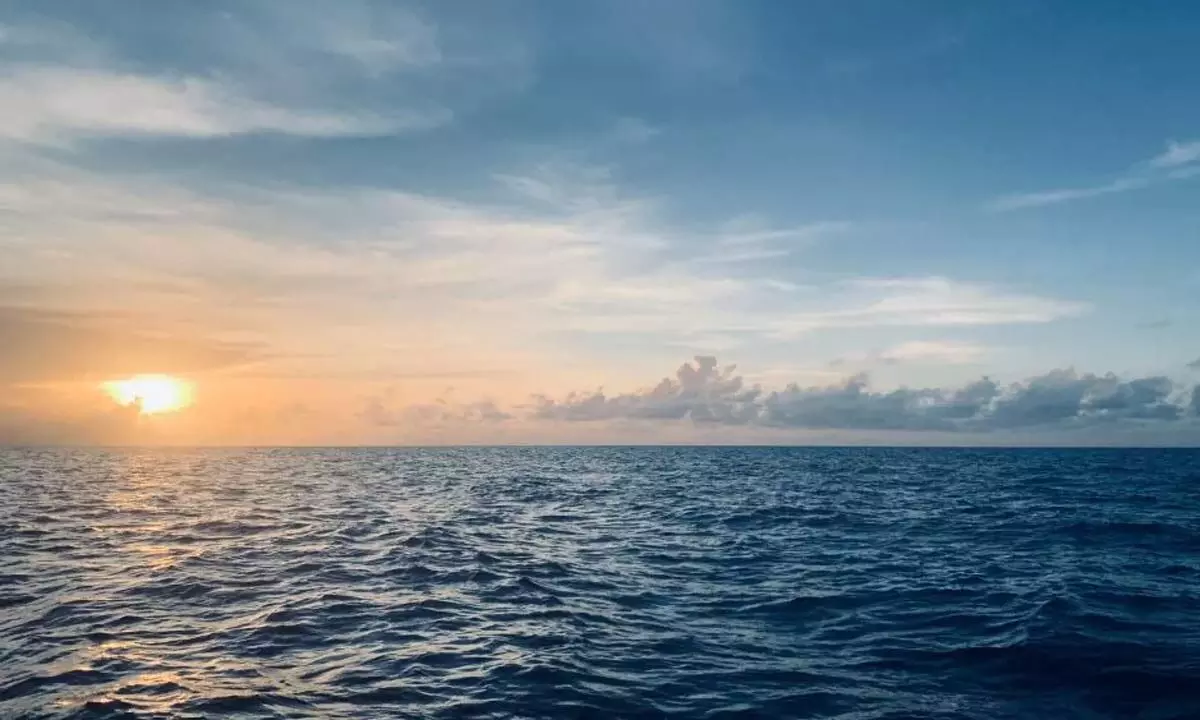Securing maritime routes more vital now

Representational image
The ocean is our joint heritage. Our sea routes are the lifeline of international trade.
The ocean is our joint heritage. Our sea routes are the lifeline of international trade. And, the biggest thing is that these oceans are very important for the future of our planet. But today our shared maritime heritage is facing many challenges. Sea routes are being misused for piracy and terrorism. There are maritime disputes among many countries. And climate change and natural disasters are also maritime domain-related issues.
In this broad context, if India is seeking a framework of mutual understanding and cooperation it is only for the larger good. It is with this thought that India brought this important issue before the Security Council recently. Keeping in view these challenges, Prime Minister, Narendra Modi proposed a 'five principles approach' which the world should pay heed to. His suggestion that the world must remove barriers from legitimate maritime trade is key to all of it.
The prosperity of every country depends on the active flow of maritime trade. The hurdles could be a challenge for the entire global economy. Free maritime trade has been associated with the civilization of India since time immemorial. The Prime Minister has rightly pointed out that "Thousands of years ago, Lothal port of Indus valley civilization was linked to maritime trade. It was in the independent maritime environment of ancient times that the message of peace of Lord Buddha spread to the world. In today's context, India has defined the vision of SAGAR – (Security and Growth for All in the Region) – based on this open and inclusive ethos". This vision is of a Safe, a Secure and a Stable maritime domain. Free maritime trade also requires that one fully respects the rights of each other's sailors.
The second principle is about the settlement of maritime disputes peacefully and on the basis of international law only. This is very important for mutual trust and confidence. It is only through this that one can ensure global peace and stability. In fact, with this understanding and maturity, India has resolved its maritime boundary with its neighbouring country Bangladesh. The world must face natural disasters and maritime threats created by Non-state actors together. India has initiated several steps to enhance regional cooperation on this subject. We have been the first responder in maritime disasters related to cyclones, tsunami and pollution.
The Indian Navy has been patrolling in the Indian Ocean since 2008 to prevent piracy. India's White Shipping Information Fusion Center is increasing shared maritime domain awareness in our region. We have provided training in Hydrographic Survey Support and Maritime Security to many countries. India's role in the Indian Ocean has been as a Net Security Provider. Preserving the maritime environment and maritime resources is also important if we have to tackle the challenges in a cooperative way.
As we know, the oceans have a direct impact on the climate. And therefore, we have to keep our maritime environment free from pollution like plastics and oil spills. And take joint steps against overfishing and marine poaching. At the same time, we must also increase cooperation in ocean science. India has launched an ambitious "Deep Ocean Mission". Responsible maritime connectivity is another issue that the world should focus on for success in this area. India is speaking with vision and a far sight. Listen to it.

